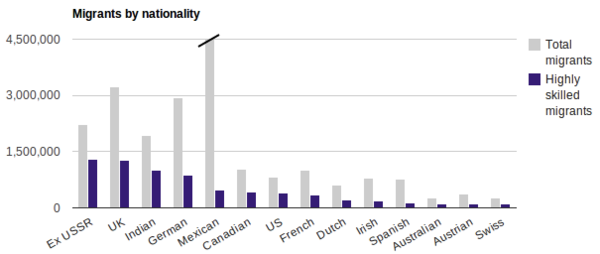Expat advertising
How to advertise to expats

Which marketing tools are you using to reach expatriates with your advertising? And are those tools the best tools to use to reach your target group?
The most important question to ask when targeting expatriates: Who are they? Customize your message to the receiver. Even more important, choose your medium wisely.
Often, expats are targeted as one group, though they are extremely diverse. For example, they can be young professionals, middle-aged senior executives, or pensioners. As an expatriate service provider, it is important to recognize your specific target group and adapt your advertising campaign accordingly. A 22 year old Indian graduate will not be your desired target audience if you are selling offshore banking products.
The wikipedia definition of an expat is a person residing in a country other than where his or her upbringing. This makes the term “expat” very vague - and not all expats might consider themselves as such. Make sure your audience can recognize themselves in your advertising. Be specific
Build upon expatriate emotion
So how do you make expats recognize themselves in your advertisement? Once you know which type of expats you’re trying to target, you can adapt your messaging. Take into account that emotional approaches often have a stronger adaption than rational approaches. Even though your products might not seem “exciting”, try to create an ad campaign that hits the emotional aspects of expat life.
For example, you’re selling a seemingly boring product such as international health insurance. In order to become interesting, you have to create an image of a situation where a expat family faces a problem which is likely to occur when living in a foreign country. Reassure them with an image that with your product this family is comforted, that they have an international, all-covering health insurance. The viewer, reader or listener will also feel secure and protected and will most likely link that feeling to your product.
Visualize specific situations expats can relate to - and imagine which type of advertising message they might respond to in that situation.
If you want to target multiple segments of the expat market, also produce multiple messages to aim for those specific emotional situations.
Multilingual campaigns
Not all expats are native English speakers. While the vast majority of expat campaigns are in English, the majority of expatriates speak English only as a second language - if at all. For example, recent data shows an increasing market of Russian and Indian expats.
Expanding your market scope and addressing those groups with advertisements in their native tongue can help you tap into new markets not yet dominated by established expat service providers (most of which are British).

OECD: Counting Immigrant and Expatriates in OECD Countries: A New Perspective
If you run your ads in multiple languages, you will have to find out where expatriates from different nationalities congregate. Which websites do they use? Do they meet in national communities, online and offline? Are they reading news sites from home (e.g. Russian news), and do these sites provide a possibility to target only readers located abroad? In big expat markets like Spain, there are specialized agencies that buy inventory from foreign media (e.g. German and British), and allow you to place your ads just to people accessing the site from Spain.
All of this seems logical, but how come so many expat marketers don’t follow these rules? The reason is simple: Since expats are a niche target, many marketers believe that expat campaigns are already very targeted in nature. The opposite is true however - next time you try to advertise to expats, remember that they’re even more diverse than the national population!